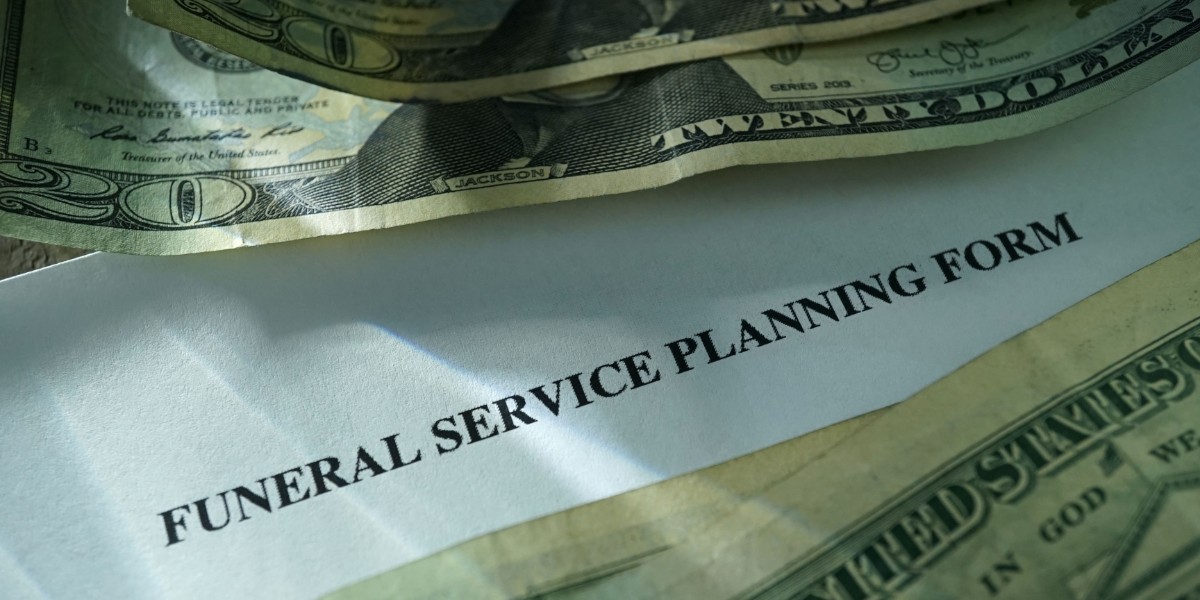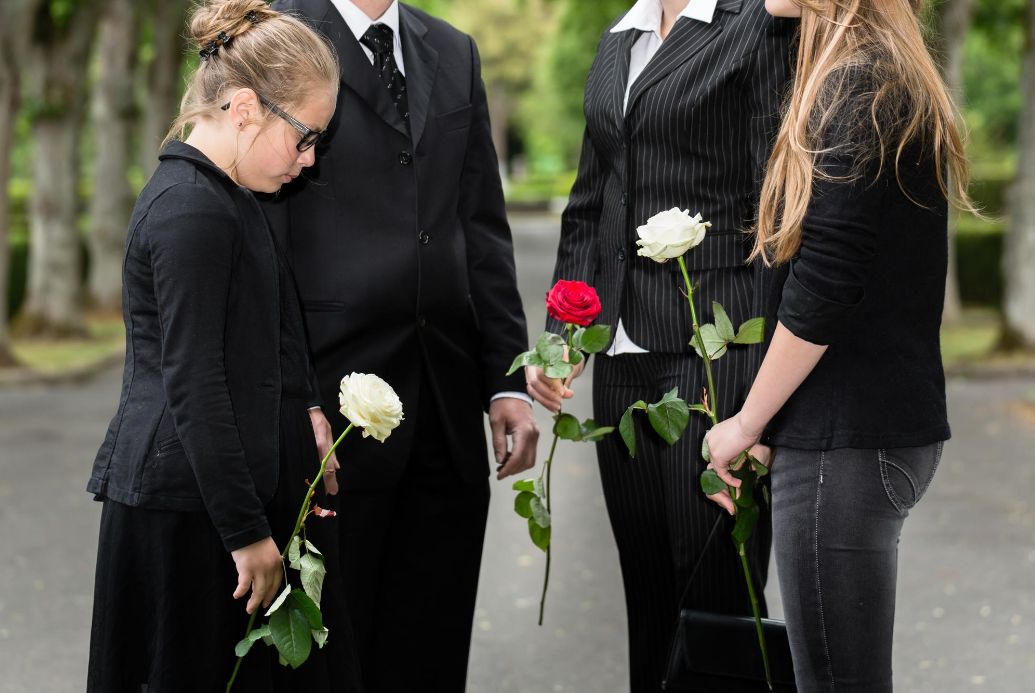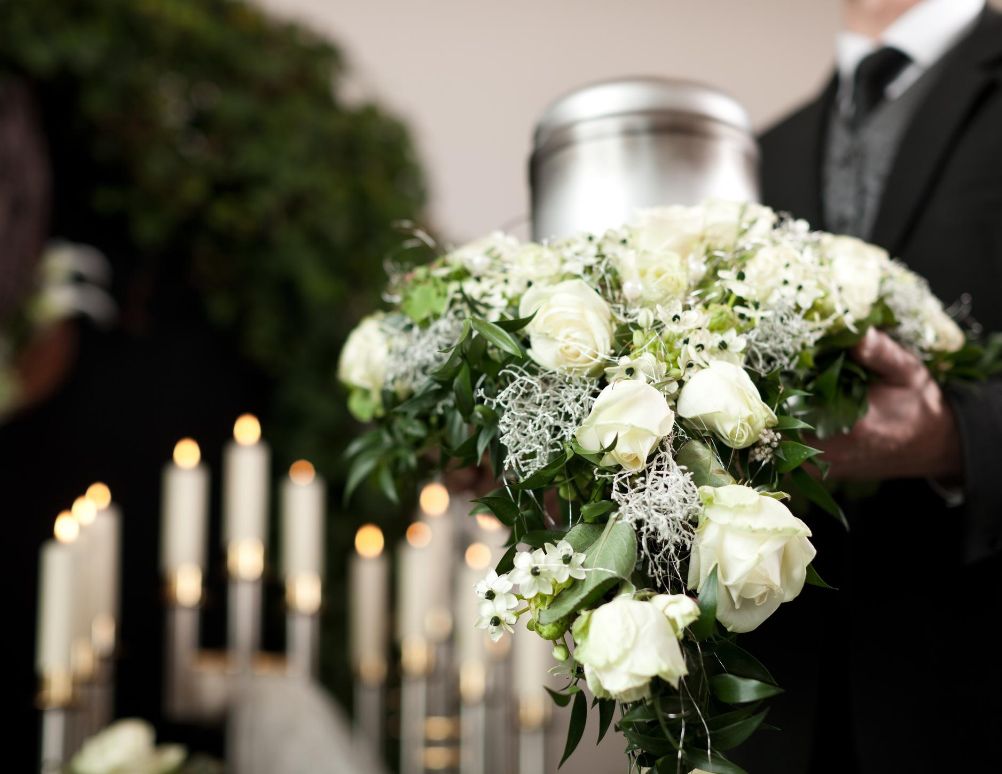
For millions of people every year, losing a loved one is a nightmare come true. In the midst of the weight of grief, they’re called upon to take care of their loved one’s final affairs and arrange for a fitting tribute. This is the last thing anyone wants to be in charge of with the pressure of perfection and the looming amount of people attending. And yet, this is what many families have to do, on very short notice.
Funeral pre planning is a solution to a stressful situation during a family’s hardest moments. By making some or all of the arrangements in advance, family members worry less about making plans or paying for a person’s final rest. And even better, people can live their last years knowing that they have made these plans for themselves, just the way they want it.
What Is Funeral Pre planning?
Pre-planning a funeral is a simple idea. When you die, there needs to be a plan to attend your final remains. Pre-planning outlines your expectations and wishes for what you would like to happen after you die. This includes a variety of aspects related to the handling of the body and a funeral or memorial service, such as:
- Embalming
- Burial or cremation
- Selections of a casket or urn
- Final placement in a cemetery or columbarium
- Arrangements for a service
- Components of the service, like flowers or funeral programs

Pre-planning can be detailed or vague, depending on what you can afford and what you want. For example, some people want to have an entire funeral and reception laid out. Others may simply want to take care of the expenses, allowing their family members or a religious institution to dictate the plan of the event.
Different Approaches to Pre-planning
Many funeral homes offer a pre-planning checklist that you can follow to make sure every aspect is taken care of. Plenty of people decide to take this route because it is often the easiest. This is hardly the only option. You may have big plans for the funeral or memorial service that go beyond what a traditional funeral home is able to offer. This requires additional planning and preparation, especially when only some of it can be done in advance.
In this case, you may want to outline your goals and expectations for your funeral or memorial service. Place your Pre-plan in a safe place with your other important documents. You may decide to set aside money as well, as part of estate planning. This can ensure the necessary funds for the event.
Benefits of Funeral Pre-planning
The truth is, no matter if you choose to pre-plan your funeral or not, the work would still need to be done. The necessity of having a plan is that it saves your family the stress, but also gives you the chance to say your last good bye to the world in a way you’d prefer.
Your family would be able to identify your preferences and arrange in advance for these items. If you are dead set on having an ice sculpture of a traditional sailing ship at your funeral reception. There is a higher guarantee of that happening, if those wishes are laid out in a pre-plan. Your family will no longer have the chance to ask your opinion, and you can’t be sure they’ll remember on their own during their period of grief.
Get the Experience You Want
Every person is unique. This means that everybody may make different decisions for the kind of funeral that they want. Experts often say that funerals are for the living, but it’s still important to honor what somebody would have wanted. When people die with no indication of their preferences, their family members have to sort through it and make quick decisions. This can often be a source of conflict, particularly if there are strong feelings about how a funeral or memorial service should be conducted. The last thing you want is family members fighting over whether you wanted to be buried or cremated, or the type of service you wanted. Pre planning eliminates almost all of this conflict by simply outlining your expectations.
Take Time to Make Choices
When family members need to plan a funeral for a loved one, they often do not have a lot of time. It depends on the season and a few other factors. But in most cases, people only have a few days between the time of a person’s death and the day of the funeral. Cremation and memorial’s offer more flexibility, but it depends on the flexibility of the people who want to attend.
Pre-planning takes care of the research burden by allowing you to browse through your options at leisure. You can take months, or even years, to select exactly what you want and how you want the service to go. In many cases, you can make changes as you go. And that way, your loved ones don’t have to spend their time guessing.
Make the Funeral Easier on Family

Pre-planning is designed to eliminate stress for everyone involved, particularly the family members going through immediate grief. Anyone who has ever had to plan a funeral with little information to go on knows of the extreme stress. Trying to imagine what their loved one would have wanted while coping with their own grief makes the whole experience more difficult. Instead, if your next of kin or executor can review funeral pre planning documents, they will know what to do. That way, all they need to do with the arrangements is coordinate with the funeral home and make any final selections as needed.
Pay in Advance
The average funeral with burial in 2020 costs between $7,000 and $12,000. The price the people pay depends heavily on what options they selected, and where they live. For a planned cremation with a funeral or memorial service, costs range from about $4,000 to $8,000. Simply put, this is a lot of money.
One of the most major benefits of pre-planning is that you can research prices, select options, and plan to pay for it well in advance of the time you’d need it. Funeral homes often have options that families can choose, related to when you want to pay for it. In some cases, you may be able to pay now for an item with a guarantee. The guarantee ensures that you won’t be charged more, even if the cost is much higher at the time of the funeral.
How to Pre plan a Funeral
Pre-planning a funeral may take a few hours or several days. This depends on how much you have researched in advance and whether or not you have refined your choices. It doesn’t have to be difficult. You can take weeks to finalize your decisions, particularly if you feel overwhelmed by the process. The goal is to get information in writing for family members at the right time. So don’t worry about getting every aspect perfect.
Choose a Good Time
It is hard to know when to plan in advance for a funeral. Some people may finalize the details decades before they die, while others may only have a year or two. An ideal time to pre-plan a funeral involves these criteria:
- Intending to remain in the same place
- Know general preferences
- Have some idea of specific choices
- Ready to make advance payments
Funeral arrangements made in advance can often be changed if necessary. But since this is more difficult, it’s wise for you to know what you want before making too many selections.
Decide on Preparations
One of the first things you should decide is what you’d like to happen with your body after you die. Although it can be viewed as a simple task, there are many elements. It is important to research what the standard is in your own area, as well as your own personal rites for burial or cremation according to your religion. Under the Funeral Rule, you are not obligated to select services or packages you don’t want. But be sure there is a plan to handle your remains from the time between your passing and your final resting place.
Select Options for Funeral or Memorial

Planning a funeral or memorial is similar to planning any other type of big family events. Granted, if someone follows a particular religious sect, they would conduct a service in a set order. Otherwise, you have a lot of flexibility. Selecting options for the event include:
- Flowers
- Programs and announcements
- Music
- Reception and catering
- Any other activities
If you are planning for a traditional burial. You’ll need to arrange for a casket, burial, vault, and a plot. Similarly, you’ll need to choose where the urn will be placed, commonly in a cemetery’s columbarium. Or if you wish for your ashes to be scattered in a special location.
Make a List of Relevant Contacts

In some cases, the funeral home will take care of everything that you need. This means that when someone passes, their family members can contact the funeral home and religious institutions where appropriate and rely on them to handle the details.
If you plan something unique, you will need to identify who to contact to finalize the planning of the memorial service or disposition of their final remains. For example, if you want your ashes scattered on a private pond owned by someone else; you will need to keep the person’s contact information in a place that is available and easy to find.
Talking to Family Members About Pre-planning
The thing about death is that no one wants to talk about it. We find it morbid, literally.But failing to have a discussion about what people want after they die creates more stress over time. It’s important for families to know what their loved ones would have wanted, and how best to carry it out. While we can certainly plan it on the fly, it’s hardly an ideal arrangement. These tips help you figure out how to start the discussion with your family members, with the goal of finalizing your funeral plans.
Opening Discussion with Adult and Children
You might expect older family members not willing to talk about their own deaths. However, it is often the children or grandchildren who struggle the most with the discussion. Someone who is starting to make sure the rest of their affairs are in order may naturally turn to funeral pre-planning. By comparison, a person who can reasonably expect to live another 30 to 50 years may not want to consider it in-depth.
For parents trying to start the discussion with your adult children, it’s important to make clear that this is a decision you are making for yourselves. That means that you don’t necessarily have to consult your kids or let them make the choices in order to create a funeral plan. For family members who simply refuse to talk about it, it may be enough to know that the plan exists. Otherwise, you may want to choose a low-conflict time and have information ready. This can make the discussion as brief as necessary.
Helping Parents Start to Plan
Sometimes, middle-aged children of older parents need to start the planning process personally. Many people think about their mortality and start to plan the handling of their estate or their will when they are in their 50s or 60s. In some cases, people put it off until they no longer have the inclination or ability to take care of it themselves.
That’s when adult children should take initiative to help their parents. You can start by doing research into local funeral homes. Do some of the legwork by requesting price lists and getting brochures with options and pictures. With this information, you can sit down with your parents and talk to them about what they want from a funeral. Once your parents have made some choices, the adult children can handle many of the finer details, like payment.
Start Early
Death can be sudden or protracted. Someone may pass unexpectedly in the prime of life, or live much longer than their own children. Since neither is a given, you should plan to start early with these discussions. The earlier you start, the more time you have to make your expectations clear with your families.
This is even more important in families where there may be a lot of conflict among siblings, or where someone’s next of kin simply does not want to have the conversation. With time and compassion, you can make progress toward a funeral plan that meets your needs without alienating your loved ones.
Focus on Benefits
The benefits of pre-planning aren’t just for the person who is making their own funeral arrangements. This is beneficial for families because they have less to worry about and often less debt to shoulder at a time of sudden grief. You can pave the way for a better discussion by emphasizing these benefits. Focusing on how it makes it easier for your family members can open the conversation on a positive note. For example, you may want to say things like:
- “I want you to know what I’ve planned for myself.”
- “I don’t want you to have to worry about paying for it.”
- “I’m taking care of this now, so that neither of us have to worry about it later.”
Statements like these show that you care enough about your family members to try to remove stress for them in the future.
Keep Planning Documents in a Safe Place
Although funeral planning isn’t designed to be complicated, it does take a bit of investment. This means that you should take the time to ensure that your plans can be found by your next of kin, especially if you pass unexpectedly. The last thing that anybody wants is to go to this effort only to have your family members planning a funeral on short notice because they didn’t know about the plans. This makes notifying family members very important to the process. People should know where these documents are kept, particularly if they are not held inside a person’s home. The easier they are to find, the higher the likelihood that family members will be able to carry out the funeral as planned.

Funeral Pre-Planning Tips
Planning a funeral doesn’t have to be gloomy or even boring. There are lots of options that you can choose to suit your personalities and your own styles. These tips help people get organized, handle payment and ensure that someone else knows about it.
1. Make a List of Expectations Before Planning
Before starting the process of planning, it’s important to outline a list of expectations. This might include what you want, as well as what your religious beliefs dictate and what you expect from your family members. You don’t have to know the exacts. But if you can write down what you hope to achieve, it will help guide their choices when they need to make them.
2. Set a Budget
Once you have a general sense for what you hope to do, you should set a budget that will help you achieve it. In many cases, you do not need to pay for the funeral and services in a lump sum when it’s arranged. This means you won’t need to have all the money ready to go in order to make arrangements. However, it’s wise to think about all the aspects involved and how much you want to spend on them. For example, if you would love to have a catered reception after the funeral, that may be more expensive than if it's a simple burial or scattering service.

3. Research Prepayment Options
Funeral homes often offer a variety of options that you can choose for paying for a funeral or memorial. Specifically, you might be able to select:
- Payment in a lump sum
- Monthly payments over a specific period of time
- Payment for certain services in advance, with the rest to be handled at the time of service
If you pay for a funeral in advance you need to find out how the costs may change. In most cases, funeral homes will have a plan in place to handle inflation. For example, they may take out a small life insurance policy at the time of planning that will cover the remainder of the expenses at the time of service.
4. Find Out How to Make Changes
Sometimes, people plan their funerals in advance only to realize that they need to make changes. For example, if you make arrangements with a particular funeral home and then need to move, you have to decide whether you will continue with the same company in that location or want to transfer somewhere else. Since most funeral homes are owned by families and not as part of a larger chain, there isn’t necessarily a standard practice for doing this. In some cases, funeral homes go out of business and you will need to make new arrangements with a different one. Before finalizing plans, you should ask what to do if you find themselves in a situation like this. Understanding your options will minimize hassle and stress later.
5. Relay Information to Next of Kin
Even the best-laid plans may not come to pass if the people in charge of carrying them out don’t know about them. This is why making sure that family members know about the plan is so important. Opening a discussion about funeral planning can happen before the plans are complete or sometime after. You should take the time to let your loved ones know where this information is and the basic details. This helps to smooth out the process when the time comes for the funeral.
Pre-planning a funeral is one of the best ways you can show your love for your family members. It’s also one of the most direct methods you can ensure that your remains are handled to your specifications, with a funeral or memorial service that meets all of your expectations. By going to this effort before you really need it, you avoid the cost and stress for the family of planning a large event unexpectedly in a few days. That way, those days can remain available for the love between family members and the person they lost.





